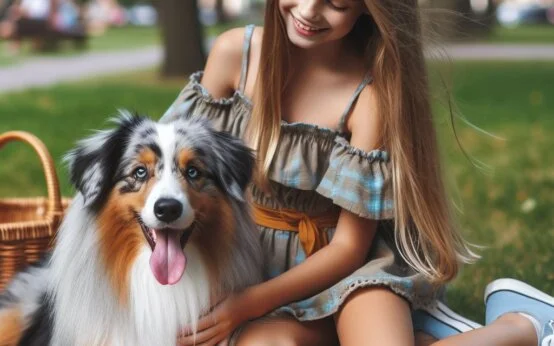French Bulldogs are a well-liked breed of companion dog that originated in France. What distinguishes them are their bat-like ears, wrinkled cheekbones, and little build. Here are some specifics and traits of this charming and loving breed.
History and Origin
The French Bulldog’s ancestry is not French, but English.They originated with the English Bulldog, which was created especially for the vicious activity known as bull baiting, in which canines fought restrained bulls. Following the 1835 ban on bull-baiting, some breeders started to make smaller, more docile Bulldogs known as toy Bulldogs. These canines were well-liked pets among lace makers and other artisans in Nottingham, England. During the Industrial Revolution, many lace makers moved to France and took their Toy Bulldogs with them.
There, the Terrier Boule and other local ratters were crossed to form the French Bulldog, or Boulogne Francois. The breed gained popularity in Paris’s upper class and bohemian circles before spreading to other countries including America and Russia. The French Bulldog was officially recognized by the American Kennel Club (AKC) in 1898 and by the Fédération Cynologique Internationale (FCI) in 1910. These days, the breed is one of the most popular dog breeds globally, especially in urban areas.
Appearance and Size
With a sleek, short coat, the French Bulldog is an active, little dog.
The coat comes in a variety of colors, such as brindle, fawn, cream, and white, or a combination of these.
The breed is identified by its large, erect, bat-like ears, which give the dog an alert and curious aspect.
The forehead and area above the nose have noticeable furrows, and the head is large and square-shaped.
The nose’s extreme flatness and shortness give it a condescending appearance.
The eyes are black and round, while the tail is short and may be straight or curved.
The French Bulldog has a powerful, compact build with a broad chest and a softly arched back.
The legs are short and robust, while the feet are tiny and well-padded.
The French Bulldog stands between 11 and 13 inches (28 and 33 cm) tall and weighs between 16 and 28 pounds (7 and 13 kg) at withers. There isn’t much of a size or look difference between men and females.
Personality and Temperament
The French Bulldog is a lively, affectionate, and adaptable dog that loves human interaction and companionship. They are devoted to their owners and get along well with children and other animals. Because of their great intellect and eagerness to please, they are also quite social and easy to train. However, given their potential independence and stubbornness, they could also need strict and ongoing direction. Since the French Bulldog is not a very active dog, it doesn’t need a lot of exercise. They do well in apartments as long as they have access to fresh air and go on regular walks. They are quite vulnerable to high temperatures, especially heat, and their narrow noses may cause respiratory problems.
It is advised to keep them inside in a cool, cozy area with plenty of access to shade and water. The French Bulldog is an extroverted canine that enjoys interacting with people and other canines. They are neither aggressive or territorial, while being wary and protective of their family. Although they don’t bark much, they could if there are intruders or strange noises. They also don’t experience separation anxiety, but if left alone for long stretches of time, they might become lonely or bored. People who can provide them with plenty of attention and mental and physical stimulation would be the best owners for them.
Health and Care
A French Bulldog may live up to 14 years on average, and they are generally healthy canines. However, much like any breed, they may have some health issues, such:
- Brachycephalic Airway Syndrome:
Dogs like French Bulldogs, who have flat features and small noses, are susceptible to this illness. It results in wheezing, snoring, breathing problems, and hyperthermia. Avoiding vigorous activity, keeping the dog cool and hydrated, and using a harness rather than a collar are ways to manage it. Surgery could be necessary in some situations to clear the blockage in the airway. - Hip Dysplasia:
This hereditary condition causes arthritis, discomfort, and inflammation in the hip joints. X-rays may be used to diagnose it, and medication, weight loss, and surgery can be used to treat it. It may be avoided by selecting a reliable breeder who examines their dogs for hip issues and by keeping young dogs from engaging in excessive activity or leaping. - Intervertebral Disc Disease:
This is a spinal cord disorder that results in discomfort, weakness, and paralysis. It may be brought on by an injury, an infection, or disc degeneration. MRIs, X-rays, and neurological exams may all be used to diagnose it. Medication, relaxation, and surgery are available forms of treatment. Maintaining a healthy weight for the dog, refraining from vigorous play and leaping, and utilizing ramps or steps to reach high areas may all help prevent it. - Allergies:
This ailment results in the dog reacting negatively to allergens, food, dust, pollen, or fleas. It may result in skin infections, hair loss, licking, scratching, and itching. Elimination diets, blood testing, and skin examinations may all be used to diagnose it. Medication, vitamins, topical treatments, and hypoallergenic diets are all options for treating it. By avoiding the allergies, maintaining the dog’s cleanliness and grooming, and using flea and tick treatment, it may be avoided.
The short hair and simple maintenance of the French Bulldog mean that they need little in the way of grooming. In order to get rid of loose hair and grime, they should be brushed once a week and washed once a month, or more often as required. In addition, they should have their nails clipped every few weeks to avoid overgrowth and cracking, and their ears cleaned on a regular basis to avoid infections. To avoid dental issues and bad breath, they should wash their teeth every day or at least once a week. A fantastic dog that can fill any household with happiness and fun is the French Bulldog. They make devoted, engaging, and affectionate friends who fit into any setting or way of life. For owners seeking a low-maintenance, highly-personality, and very cute pet, they are perfect.
How do I train a French Bulldog?
For you and your pet, training a French Bulldog may be an enjoyable and fulfilling experience.French Bulldogs are perceptive, gregarious, and loving canines who enjoy training and rewarding their owners.To properly teach them, you will need to employ positive reinforcement, patience, and consistency since they may also be sensitive, obstinate, and quickly bored.
The following are the fundamentals of training a French Bulldog:
- Puppy proof your house.
Make cautious to get rid of any risks or temptations that can endanger your Frenchie or damage your possessions before bringing them home. Any electrical cables, garbage cans, shoes, or plants that your dog may gnaw on or ingest, for instance, should be secured. - Get a crate and some toys.
An effective item for giving your puppy a secure and cozy spot to sleep, relax, or remain while you are gone is a crate. In order to avoid boredom and keep your puppy amused, you should also get some soft toys and chews. Given that most dogs won’t urinate in their sleeping quarters, you may utilize the cage to assist with toilet training. - Start potty training as soon as possible.
Your puppy will learn more quickly and have fewer accidents if you start teaching him where to relieve himself as soon as possible. Take your puppy outdoors regularly, particularly just after you get up, eat, drink, or play with it. When your dog poops in the proper place, give him praise and a treat; if he goes inside, don’t pay him any attention or stop him. Your dog will simply get scared or confused if you chastise or penalize him for mishaps 23. - Teach your puppy some basic commands.
When your puppy is around eight weeks old, you may start teaching him basic instructions like sit, stay, come, and leave it. To encourage your puppy to follow your instructions, give them goodies and praise. Training sessions should be brief and enjoyable. It is recommended to repeatedly repeat the orders in various scenarios and to progressively raise the exercises’ intensity and length.
- Socialize your puppy with people and other dogs.
Your puppy’s growth depends on socialization since it makes him more self-assured, amiable, and well-mannered. It is important to provide your puppy with pleasant and safe exposure to a variety of people, places, noises, and animals. Introduce your puppy to people of all ages, genders, and looks, and let him socialize and play with other well-mannered and vaccinated dogs. Reward your puppy for his composure and manners, and keep him out of any circumstances that may frighten or overwhelm him 34. - Prevent biting and chewing.
French Bulldogs are notorious for being nippy and mouthy, particularly when they are playing or going through teething. It’s important to educate your puppy not to bite or chew on people or unsuitable items since this might develop into a major issue as he gets older. To prevent your puppy from biting, you may refocus his interest on a toy or chew when he bites, and if he persists, you can either stop playing with him or ignore him. Additionally, when your puppy plays well or chews on the appropriate objects, you should give him praise and treats 13. - Leash train your puppy.
In order to educate your puppy to walk well and securely beside you, leash training is essential. Your dog should be progressively introduced to various situations and distractions after becoming used to wearing a collar and leash. If your puppy pulls, you should gently scold him and give him a treat for sticking close to you. Additionally, as French Bulldogs might overheat or freeze, you should refrain from taking your puppy for walks during very hot or cold temperatures 13.
These are some fundamental stages in training a French Bulldog, however keep in mind that each dog is unique and may pick up skills at a different rate. When dealing with your puppy, you should always be kind, patient, and consistent. You should also avoid using harsh or unpleasant techniques that might harm or frighten him. It might be difficult, but it can also be very gratifying and fun to train a French Bulldog. You and your Frenchie will have a solid and enduring relationship with the right training. 👶❤️
How do I correct bad behavior in a French Bulldog?
Although they are very charming and loving dogs, French Bulldogs may sometimes have certain behavioral issues. The most frequent problems that owners of French Bulldogs deal with include clinging, chewing, barking, howling, begging, tugging on the leash, leaping on people, being obstinate, and playing too rough.
The good news is that with the right guidance and encouraging feedback, the majority of these issues can be resolved. The following are some common pointers for training your French Bulldog puppy etiquette and discipline:
- Be consistent and firm with your rules and expectations.
Just because your Frenchie is adorable or humorous, doesn’t mean you should tolerate terrible conduct from them. When they behave correctly, commend them; when they behave incorrectly, correct them.
- Use a calm and authoritative voice when giving commands or corrections.
Reprimanding, hitting, or yelling at your Frenchie can only make them defensive or hostile. Instead, speak to them in a way that communicates your authority and your sincerity by using a clear, certain tone. - Use positive reinforcement to encourage good behavior.
When your Frenchie obeys your instructions, behaves nicely, or picks up a new skill, give them praise. As a reward, give them toys, snacks, or time to play. When they bark, whine, or beg, don’t feed them or give them attention since this will simply make their negative behavior worse.
- Use distractions and redirections to prevent or stop bad behavior. Give your Frenchie something proper to chew on, such a bully stick or a Kong toy, if they are chewing on something they shouldn’t. Call them to you and ask them to do something different, like sit, remain, or heel, if they are barking or whining without a good cause. If they are leaping on people, go away and ignore them until they stop, at which point you should bow to them.
- Teach your Frenchie basic obedience commands and social skills.
Simple instructions like sit, remain, come, and leave may help you manage your Frenchie’s behavior and ensure their safety. Your Frenchie will learn acceptable behavior and how to play well with others by being socialized with humans and other dogs.
Recall that teaching your French Bulldog to behave properly is a lifetime effort that calls for love, patience, and consistency. Although you shouldn’t give up on your Frenchie just yet, don’t expect them to be flawless right away. With the right direction and encouragement, your Frenchie will develop into a joyful, well-mannered friend.
What are some common mistakes to avoid when training a French Bulldog?
Although they make devoted and charming friends, French Bulldogs can sometimes be obstinate and difficult to teach. There are a few typical blunders that you should steer clear of if you wish to teach your Frenchie basic obedience instructions and etiquette. To name a few, these are:
- Long training sessions:
French Bulldogs are quickly bored or irritated and have a short attention span. It is advisable to limit the duration of your training sessions to no more than ten minutes each. Treats and praise are examples of positive reinforcement that you may use to maintain your Frenchie’s motivation and interest. - Negative reinforcement:
Because they are delicate animals, French Bulldogs don’t take well to harsh or punishing techniques like beating, screaming, or scolding. These might weaken your relationship with your Frenchie and incite fear or aggression in them. Rather of ignoring or redirecting undesirable behavior, you should use positive reinforcement—treats and praise—to reward your Frenchie for good conduct. - Training in hot or cold weather:
Because of their flat features and small snouts, French Bulldogs are more likely to suffer from heatstroke and respiratory issues. Additionally, their thin coats do a poor job of shielding them from the cold. As a result, you should refrain from exercising your Frenchie in very hot or cold weather, particularly outside. Fresh water should always be available, particularly while exercising outdoors. If your Frenchie begins to pant excessively during training, stop and take regular breaks. - Any water activities:
French Bulldogs’ hefty heads and small legs make them poor swimmers who are prone to drowning. In addition, they suffer from skin issues and ear infections, both of which might become worse in the water. Swimming, boating, and bathing are among the aquatic activities you should not engage in with your Frenchie. If cleaning is necessary, put a moist cloth or dry shampoo on your Frenchie. - Overfeeding your French Bulldog:
Obesity and associated conditions including diabetes, arthritis, and heart problems are common in French Bulldogs. They also often overeat and ask for food. As a result, you should maintain a balanced, portion-controlled diet and refrain from overfeeding your Frenchie. Additionally, you should pick low-calorie and healthful snacks for your Frenchie and restrict the quantity you provide them while they’re exercising.
You may teach your French Bulldog more successfully and have a joyful, harmonious connection with your pet by avoiding these typical blunders.Have fun and good luck.
What are some fun games to play with a French Bulldog?
Adorable and energetic, French Bulldogs love playing a variety of activities. Here are a few enjoyable games you may play with your Frenchie:
- Treasure Hunt:
This game tests the cognitive and olfactory abilities of your dog. Treats may be hidden behind paper cups, boxes, or sacks, and your dog can be asked to discover them. While playing this game, you may also teach your dog the commands “Find” and “Get.” - Hide and Seek:
- This is a traditional game that teaches your dog useful instructions like “Come here” and “Stay.” You may summon your dog to locate you by hiding behind a tree or in a different room. You may even ask your dog to locate the other person if you want to.
- Tug of War: Your dog may benefit from this activity by having their muscles trained and their stress level lowered. Your dog can pull on a rope or a tug toy by using their teeth. Take care not to damage your dog’s mouth by pulling too forcefully.
Fetch or Chase:
This is an easy and enjoyable game to keep your dog occupied and active. A soft toy that is lightweight and easy for your dog to pick up and return to you may be used. Additionally, you may let your dog pursue other toys or you as you run around together. - Puzzle Toys:
You can really encourage your dog’s interest and intellect by playing this game with them. Treats may be hidden in compartments or mazes of puzzle toys that you can construct or purchase. It will be up to your dog to figure out how to move, spin, or slide the toy in order to acquire the rewards.
You may play these entertaining games with your French Bulldog. Never forget to give your dog goodies and praise whenever they behave nicely. Additionally, make sure your dog is in a positive attitude and not bored or exhausted before playing these activities. 😊 Enjoy your time with your Frenchie!
What are some indoor games for a French Bulldog?
Adorable and lively, French Bulldogs like spending time with their owners. They need mental and physical stimulation to be happy and healthy since they are also clever and inquisitive. But because of their brachycephalic (short-nosed) traits, individuals are more likely to overheat and have trouble breathing in hot weather or while engaging in vigorous activity. It is crucial to choose indoor activities that fit their demands and skill level as a result.
You may play a variety of indoor games with your French Bulldog, including:
- Hall ball: This is a gentler variation of fetch where you toss a ball down a long corridor or hallway and your dog chases after it. Instead of using a ball, you may alternatively use a rope or a soft toy. This game allows your dog to exercise their retrieve abilities and burn off some energy.
- Scent games: In these activities, your dog must use their nose to discover toys or rewards hidden around the home. As your dog becomes more adept at it, you may progressively raise the challenge by starting with easier locations for the goods. You may even call your dog’s name while hiding and playing hide-and-seek with them. Your dog’s senses are stimulated and rewarded for their efforts with this game.
- Puzzle toys: With these toys, your dog must overcome an obstacle or complete a job in order to get a reward or access a toy. For instance, you may use a treat ball that releases kibble when your dog rolls it or a Kong toy that is packed with peanut butter. Additionally, you may create your own puzzle toys out of muffin tins, cardboard boxes, and plastic bottles. This is an intellectually stimulating game that will keep your dog busy for a long time 13.
- Training games: In these activities, you may teach your dog new skills or practice the ones they already know. Treats, toys, or verbal praise may be used to acknowledge your dog’s good behavior. Basic commands like sit, stay, and come may be taught to your dog, as well as more complex ones like roll over, spin, and high five. Additionally, you may train your dog entertaining behaviors like collecting your slippers, shutting doors, and acting dead. Playing this game will increase your dog’s loyalty and improve your relationship with them 14.
- Indoor obstacle course: In this game, you construct up a course of obstacles that your dog must go through to win. To construct the course, you may utilize furniture like chairs, cushions, blankets, crates, and tunnels. To encourage your dog, you may also add some toys or goodies along the path. You may use hand signs or vocal cues to help your dog navigate the course. This game improves the coordination and agility of your dog 14.
To keep your French Bulldog happy and healthy, you may play some of these indoor activities with them. Keep an eye on your dog’s respiration and body temperature, and stop the game if they seem distressed or tired. Give your dog water as well, and give them praise for participating. Enjoy yourself and your Frenchie!
Read More: Fluffy Corgi Puppies Charm
Frequently Asked Questions
Are French Bulldogs good for families?
Yes, French Bulldogs are excellent family pets. They are affectionate, friendly, and get along well with children and other animals.
Do French Bulldogs require a lot of exercise?
French Bulldogs are not highly active dogs and do well with moderate exercise. Short walks and playtime are usually sufficient to keep them happy.
Are French Bulldogs prone to health problems?
Yes, French Bulldogs are prone to certain health issues, primarily due to their brachycephalic (flat-faced) structure. Regular vet check-ups and responsible breeding practices can help mitigate these risks.
Do French Bulldogs shed a lot?
French Bulldogs have short coats and do shed, but it’s not excessive. Regular brushing can help manage shedding.
How long do French Bulldogs live?
The average lifespan of a French Bulldog is around 10-12 years, but with proper care, some can live even longer.
Can I adopt a French Bulldog from a rescue organization?
Yes, many French Bulldogs are in need of loving homes and can be adopted from rescue organizations. It’s a rewarding way to provide a home for a Frenchie in need.


 Mini Labradoodle: A Complete Guide
Mini Labradoodle: A Complete Guide  Dapple Dachshund: A Unique and Lively Breed
Dapple Dachshund: A Unique and Lively Breed  Pocket Pitbull: A Compact Canine Companion
Pocket Pitbull: A Compact Canine Companion  Preparing for an Adventure: A Golden Retriever Packs Its Suitcase
Preparing for an Adventure: A Golden Retriever Packs Its Suitcase  The Blue Merle Australian Shepherd: A Captivating and Unique Breed
The Blue Merle Australian Shepherd: A Captivating and Unique Breed  Long Haired Dachshund: A Guide to This Charming Breed
Long Haired Dachshund: A Guide to This Charming Breed  Mini Labradoodle: A Complete Guide
Mini Labradoodle: A Complete Guide  Dapple Dachshund: A Unique and Lively Breed
Dapple Dachshund: A Unique and Lively Breed  Pocket Pitbull: A Compact Canine Companion
Pocket Pitbull: A Compact Canine Companion  Preparing for an Adventure: A Golden Retriever Packs Its Suitcase
Preparing for an Adventure: A Golden Retriever Packs Its Suitcase  The Blue Merle Australian Shepherd: A Captivating and Unique Breed
The Blue Merle Australian Shepherd: A Captivating and Unique Breed  Long Haired Dachshund: A Guide to This Charming Breed
Long Haired Dachshund: A Guide to This Charming Breed
1 Comment